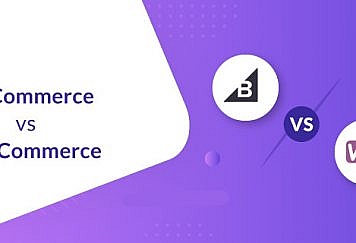Enrolling in a renowned business analyst course can carve a remarkable business analyst career path for you. The roles and responsibilities of a business analyst are critical for the operational efficiency, as well as the competitive edge of a business. From identifying and implementing improvement opportunities for the business, assisting in designing/modifying existing business systems, to being an organizational change-enabler and recommending value-driven solutions to the stakeholders, there are multiple areas of expertise and prowess that a business analyst needs to demonstrate. Indeed, the career path of a business analyst happens to be amongst the most challenging, exciting, and rewarding ones in today’s tumultuous times. A well-charted business analyst course online can equip you with all the necessary skills, knowledge, and formal certification to mold you as a successful business analyst.
How is a Business Analyst different from a Business Continuity Analyst?
More often than not, many business analyst course aspirants tend to use the terms Business Analyst and Business Continuity Analyst interchangeably. In reality, both of these roles are very different from one another, and so are the qualifications required for both. Let us understand the key differences between them.
| Title | Business Analyst | Business Continuity Analyst |
| Roles and Responsibilities |
|
|
| Skills Required |
|
|
| Qualifications Required | Business Analyst Course is a must. Degree Qualification can be in Business/IT | Degree in Computer Science/Computer Applications |
Business Analyst Courses List: An Overview
Choosing the right course from the business analyst courses list is important. If you are on the lookout for a renowned business analyst course online, here’s a look at the top three most sought-after courses:-
- Entry Certificate in Business Analysis or ECBA: This course module covers foundational aspects of Business Analysis. To make this certificate, you need to have a minimum of 21 logged learning hours. The ECBA examination comprises 50 multiple-choice questions. Clearing this certification can be a stepping stone for your dynamic Business Analyst career. The ECBA syllabus outlines Business Analysis Planning and Monitoring, Requirements Analysis, Basic Life Cycle Management, Elicitation, Collaboration, and Underlying Competencies.
- Certificate of Capability in Business Analysis or CCBA: This is an intermediary-level Business Analyst Course. A minimum of 2 to 3 years of work experience as a Business Analyst is required to apply for this certification. Furthermore, there is a requirement of 21 logged learning hours. The 3-hour long CCBA examination has 130 multiple-choice questions. The CCBA syllabus covers areas like Advanced Business Analyst Planning and Monitoring, Strategy Analysis, Solutions Evaluation, and a deeper understanding of Elicitation, Collaboration, and Life Cycle Management. This certification is meant for trainers, product managers, consultants, and hybrid business analyst personnel.
- Certified Business Analysis Professional or CBAP: This is the top-tier Business Analyst Course for tackling the challenges at the senior-most levels of Business Analysis. A minimum of 7500 hours of Business Analyst Experience over a course of 10 years is a prerequisite to apply for the CBAP examination. Also, having 35 hours of logged online learning hours is compulsory. The CBAP certification demonstrates your unflinching commitment to your long-standing goal as a senior business analyst and increases your remuneration considerably. There are a total of 120 multiple choice questions in this test that lasts 3.5 hours. The syllabus covers all the major areas of CCBA and ECBA exams, but at a much higher level and with strict assessment guidelines.
Worried about Business Analyst Course Cost?
If you are concerned about the business analyst course cost, you should know that the career benefits of being a certified business analyst far outweigh the costs. Be it in terms of increasing your employability, fetching you increments, assigning you higher roles in the company, or enhancing your Curriculum Vitae as a competent professional, the right business analyst certification can work wonders for your professional journey.
Conclusion
If the realm of business analysis intrigues you, then you should definitely check out the business analyst courses list and enroll for the course that is relevant for you. Since most of us are confined to our homes in the wake of the Covid-19 pandemic, this is the ideal time to get enrolled for a suitable business analyst course. Not only will this be an excellent use of leisure time, but it will also ensure you have a promising career ahead of you!
Follow TechStrange for more Technology, Business, and Digital Marketing News.





